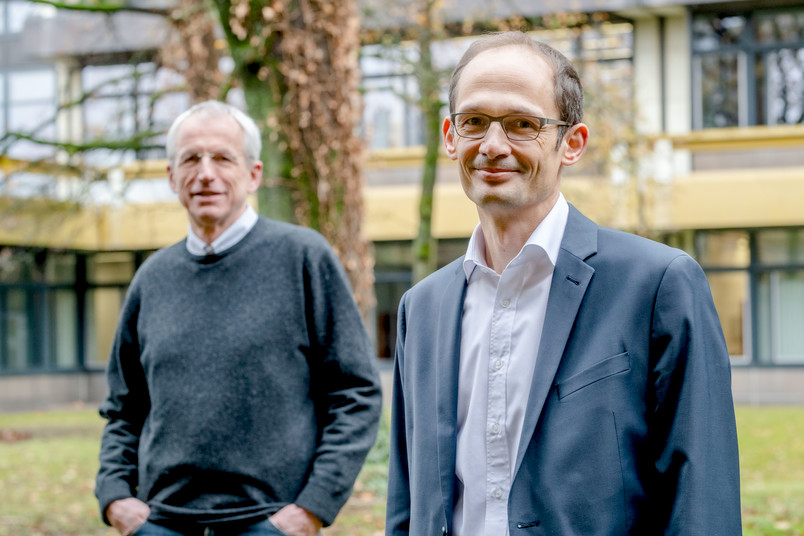Understanding interdisciplinarity as an opportunity
The new Deans of Studies invite you to discover the wide range of study options.
The optional area is something that makes RUB special. At first glance, there are similar offerings elsewhere. But only at RUB is the optional area firmly anchored in Bachelor's examination regulations, its own stably financed institution and equipped with so many modules that around 10,000 students can choose from them every semester. Since May 2020, it has been the responsibility of the new Deans of Studies Prof. Dr. Sebastian Susteck from German Studies and the deputy Prof. Dr. Herold Dehling from Mathematics.
As was the case for the predecessor duo Professor Dr. Klemens Störtkuhl and Professor Dr. Anette Pankratz - who headed the Optionalbereich until May 2020 - the focus is on interdisciplinarity. "The Optionalbereich enables a studium generale," says Susteck. All areas of the RUB can supply courses. Most of the offerings come from the 14 faculties that support the Optionalbereich. They guarantee the wide spectrum of courses for the students.
More than just the specialized degree
"The Optionalbereich offers the unique opportunity to expand one's own studies. For example, students can acquire skills in project planning or computer science in addition to specialist knowledge," explains Susteck. In addition to their specialized training, it is possible to acquire skills that will also be useful in later professional life.
Languages are the profile with the most offerings in the optional area. But there is much more than that. "One part includes teacher training in the bachelor's degree and preparing future teachers for the profession. Then there is an open area with six profiles that we want to strengthen and develop in the future," Susteck said.
This includes, for example, an offering that deals with genocide research and religion. Topics related to climate change and sustainability are also represented, as are seminars on rhetoric, communication strategies or cryptography in the IT field. "Very many colleagues support the Optionalbereich with exciting and diverse offerings. Their commitment is what makes us successful," explains Susteck. Internships are also anchored in the Optionalbereich. This gives students an insight into their dream job and a reality check. Students learn how to apply the professional skills they have already acquired.
Recognizing and seizing the opportunity
Susteck himself needed only little time to think before deciding to take on the job of Dean of Studies. The professor of modern German Studies and Didactics of Literature brings with him an interest in teaching and learning processes - in addition to interdisciplinarity, which is also represented by his collaboration with mathematician Dehling. The two see the next years as a challenge to further develop the Optionalbereich and to expand what has been achieved in the past years in the cooperation of the faculties, but also with the support of the rectorate.
First-year students are occasionally irritated by the Optionalbereich. Managing Director Astrid Steger can also report on this: "Students are very focused on their subject and are then expected to do something that doesn't fit in at first glance." But this is precisely where the opportunity lies for an impression of other departments, other ways of thinking and the chance to get to know students from other faculties.
To help with this, the office of the Optionalbereich has been working with Susteck and Dehling over the past few months to develop additional information, videos and presentations and post them on the homepage. This process will continue as well. So a look at the internet and the module search with the courses is worthwhile in many ways.
Here you can access the original article.
